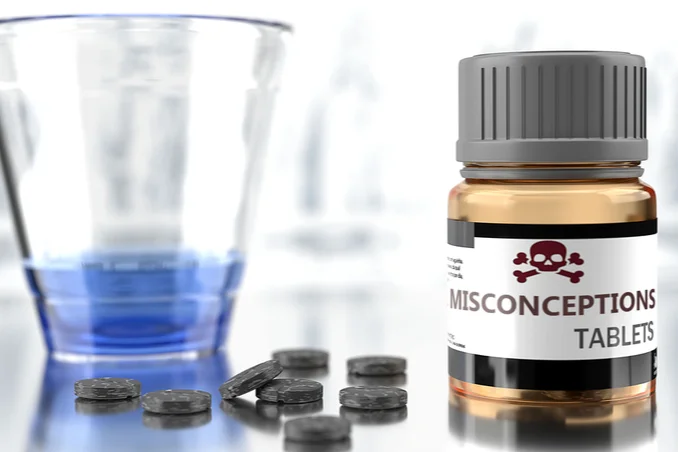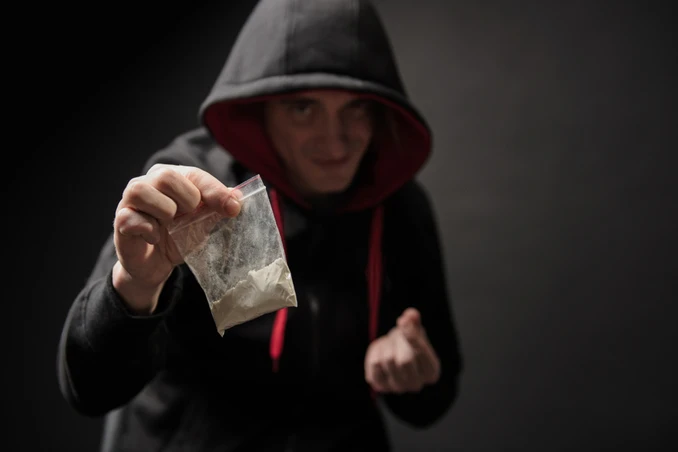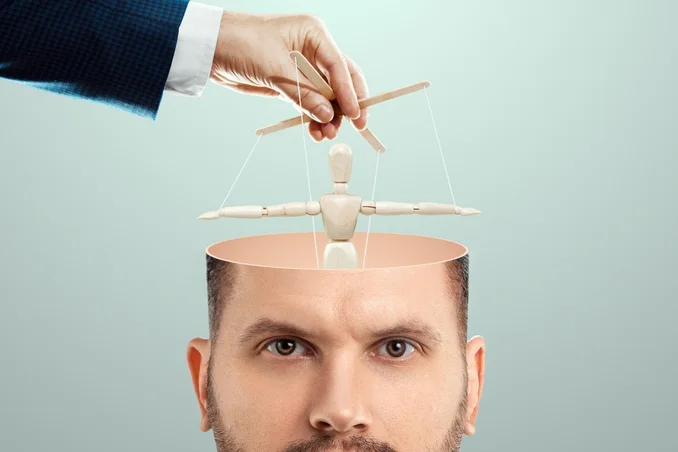Addiction: The Good, The Bad, and The Ugly
Table of Contents
- Addiction: The Good, The Bad, and The Ugly
- The Misconceptions of Addiction
- A Personal Experience With the Power of Emotions
- Addiction: Cunning
- Addiction is… Baffling
- Addiction is… Powerful
- What Are Some Effective Tips for Maintaining Sobriety?
- Finding the Right Treatment Options, Here & Now!
- Medically Reviewed By
Unfortunately, many people who have never stepped foot into the fellowship rooms of a Twelve-Step addiction recovery program have extremely negative and inaccurate perceptions of addiction. This is primarily due to the fact that these people only see the destructive results of this obsession and allergy.
Once individuals who are struggling with substance abuse finally make the decision to get sober, their success often can be shocking for family members and friends who have lost sight of the person beneath the addiction.
Of course, this just further goes to show the extent to which addiction: cunning, baffling, and powerful as it may be, is deeply misunderstood.
The hard part about making the decision to get sober, besides not being able to drink or drug is realizing that our problem isn’t so much drugs and alcohol as it is our inability to cope with life.
When I was happy, mad, jealous, lonely, excited, bored, etc., I wanted to drink and get high. If it was a nice day, I wanted to day drink. If it was raining, I wanted to shoot dope, if I was celebrating, I wanted to drink and do coke, if I was mourning, I wanted to drink to forget. I literally COULD NOT handle any of my emotions in a healthy way.
The Misconceptions of Addiction
For most addicts, their dependency can create a life of anomaly, carried out under the control of a specific substance for which there seems to be no way to overcome.
However, as addiction studies increase within the medical and scientific fields, new understandings have begun to form around the extreme hardships and consequences that come not just with substance abuse, but overcoming this disorder as well.
For many individuals, making the decision to stop drinking or quit drug use is not necessarily the hardest part of overcoming addiction. Rather, it is dealing with the underlying issues and/or external factors that make their lives only seem bearable through abusing these substances.
A Personal Experience With the Power of Emotions
When it comes to my personal experience with addiction and recovery, the hardest part of my journey was realizing that I abused substances not just as a way of covering up emotions I did not want to handle; I drank and used drugs as a way to feel nothing.
Whether I was happy, mad, jealous, lonely, excited, bored, or whatever feeling applied in any given moment, I still wanted to drink and get high. If it was a nice day, I wanted to day-drink. If it was raining, I wanted to shoot dope. If I was celebrating, I wanted to drink and do coke; if I was mourning, I wanted to drink to forget. To put it simply, I could not cope with being in touch with my emotions unless I managed them with drugs and alcohol.
Once I got sober, learning how to deal with these emotions proved to be the most difficult aspect of my sobriety at first. Sure, in the beginning, the hardest part was simply not picking up; but once I started to have more free time on my hands, I realized I had to learn how to live again.
I could no longer shoot dope when I was feeling stressed, nor could I drink after a long day at work. For non-alcoholics, this may not seem like a big deal; but for many of us, abandoning this high meant we lost a part of ourselves.
Regardless of how much money we spent or who we had to steal from to feel okay, we would do it anyway. Now, we had to learn how to live a new life. It was upon this revelation where I realized my own addiction became Cunning, Baffling, and Powerful.
Addiction: Cunning
So, what exactly does it mean for addiction to be cunning? Well, allow me to explain this from my own perspective. Personally, I realized this aspect of my addiction once I realized these truths about myself:
- No matter how much I knew I should not use, my mind would try to convince me that I could have just one drink, and not fall back down the alcohol rabbit hole.
- I would attempt to isolate myself from my fellowship because my addiction told me that I did not belong and that there were people with worse addictions than me there.
- If I had a busy day, my addiction would tell me that I did not need to attend a meeting.
- When I felt lonely, instead of turning to a higher power, my addiction would tell me I needed someone (or something) else to fill the void.
The cunningness of all of this self-sabotage is that it all comes down to the thoughts in my own mind. If I let these thoughts continue for too long, without any action or step work on my part, I am guaranteed to relapse. This is where my addiction became baffling.
Addiction is… Baffling
Something most addicts in recovery will come to realize is that addiction can truly flip the world upside down for them, particularly as they begin to understand the extent to which it may control them.
For me, the things that I found to be the most baffling about my own substance use disorder were that:
- Regardless of my desire to be sober, without taking any real action on my part, I would relapse.
- If I did not completely immerse myself into the program, my old ways of thinking would resurface in full force.
- No matter how much action I took a few months or weeks ago, if I am not continuing to do this every day, I am going to feel miserable.
Now I know this may sound like a bummer, but to be honest, it has become a sort of gift in my eyes. After all, I realized I am guaranteed to be okay so long as I do a few simple things each day to stay sober and healthy.
Addiction is… Powerful
While my situation may not be the same as that of another recovering addict, my need for constant vigilance against old habits on my end truly showed me just how powerful these habits can be. I truly realized that this affliction is, in fact, a disease, once I discovered that:
- No matter how long I have been sober, my ‘addict mind’ never truly stops. This made me realize that if I relapse, I risk becoming just as deep into these addictive behaviors as I was before.
- Relapsing while actively seeking support is a major blow, and makes me want to use more as a way to suppress this guilt.
- The danger lies primarily not in my lack of tolerance but in my powerful desire for alcohol and drugs. It does not matter if my idea is to just use a little bit; as a previous alcoholic, even the thought of using again is a slippery slope that can end destructively.
Throughout my journey, I have learned that it is much easier to live a sober life while actively participating in a treatment program, and continuing to work on my health one day at a time.
My goal is no longer to be cured; rather, I have reached a point in my life where I have accepted that while addiction is certainly cunning, baffling, and powerful, so too, am I.
All we have is a daily reprieve, contingent on the maintenance of our spiritual condition.
24 Hour Addiction Treatment Hotline – Get Help Now
877-959-7271
What Are Some Effective Tips for Maintaining Sobriety?
There are several ways in which individuals in recovery can support themselves in their goal to stay sober. Of course, some of these may work better for certain individuals, depending on their personal experience with alcohol or drug abuse.
Twelve-Step Tips for Staying Sober
For individuals who find traditional and/or spiritual treatment programs, such as Alcoholics Anonymous, to be more worthwhile while recovering, their lives may be made easier by:
- Consistently attending program meetings
- Getting a sponsor
- Continuing to follow the twelve steps to recovery
- Accepting and praying to a Higher Power for guidance
- Helping others in their own recovery journey
Whether through Alcoholics Anonymous or any other rehabilitative organization, continuing to attend meetings and talk about their experience not only allows individuals to receive support from others but potentially inspire other recovering addict to keep growing as well.
Non-12 Step Specific Tips for Staying Sober
For those who may not want to contact a Higher Power and rely on an outside force to guide them onto the path of recovery, there are several other basic ways in which they can make this process easier. A new and Buddhist-based group called Refuge Recovery is gaining traction among the AA alternatives. These may include:
- Practicing Healthy Habits. Making sure to stay hydrated and properly nourished, getting regular exercise, and creating a basic routine are all simple ways in which an individual can maintain a solid foundation in their recovery.
- Maintaining Basic Self-Care. Remembering to maintain basic hygiene, getting plenty of rest, and rewarding oneself for even seemingly minor accomplishments can help create a more positive environment within oneself while overcoming addiction.
- Seeking Therapy. It is quite common for people to turn to substance use as a means of self-soothing difficult emotions; having a therapist or counselor to help get a sense of these underlying issues may allow individuals to begin finding healthier ways of managing them.
- Building a Support System. Whether through their families, friends, or finding community support groups, having connections in place can help individuals stay on track and get through particularly difficult periods while recovering.
Finding the Right Treatment Options, Here & Now!
If you or a loved one is struggling with addiction, know that you are not alone. At Find Addiction Rehabs, we know that this disease can be a powerful force to reckon with; but that is why we are here.
Regardless of what form of substance abuse you are coping with, our hotline is available 24/7 to connect you with addiction treatment options and facilities that are dedicated to providing you with the best care possible.
Taking that first step can be scary, but we want to help you take it. So call today, and get started on your path to becoming a healthier, happier, and more whole person.
Bryan was born in Philadelphia and remains an ardent supporter of Philadelphia sports. After attending FSU and FAU where he majored in writing, Bryan ventured out to follow in the footsteps of his idols, running straight into drug addiction. After being arrested by the President’s Secret Service, Bryan finally started to rebuild his life and beat that monkey off of his back through writing, playing music, and studying Buddhist philosophy.
Despite still having the occasional struggles with mental health, Bryan strives to be a little bit better a person each day. With the support and love from a loyal family, and kind-hearted and generous friends, Bryan tries to help people vanquish their own personal demons as he did and bring more love and beauty into a pessimistic world.





